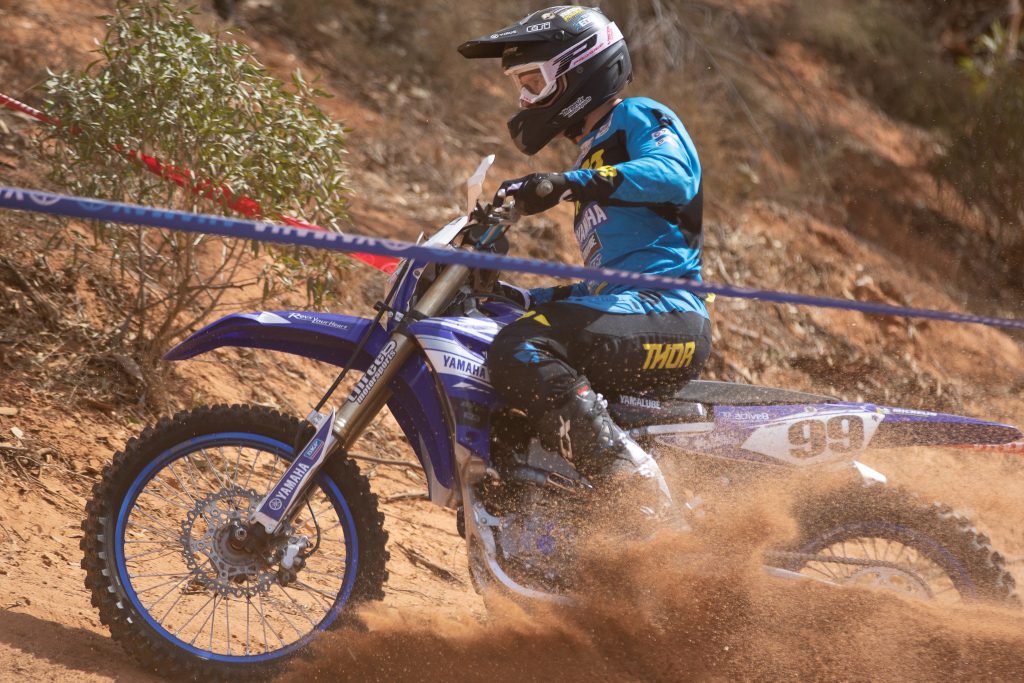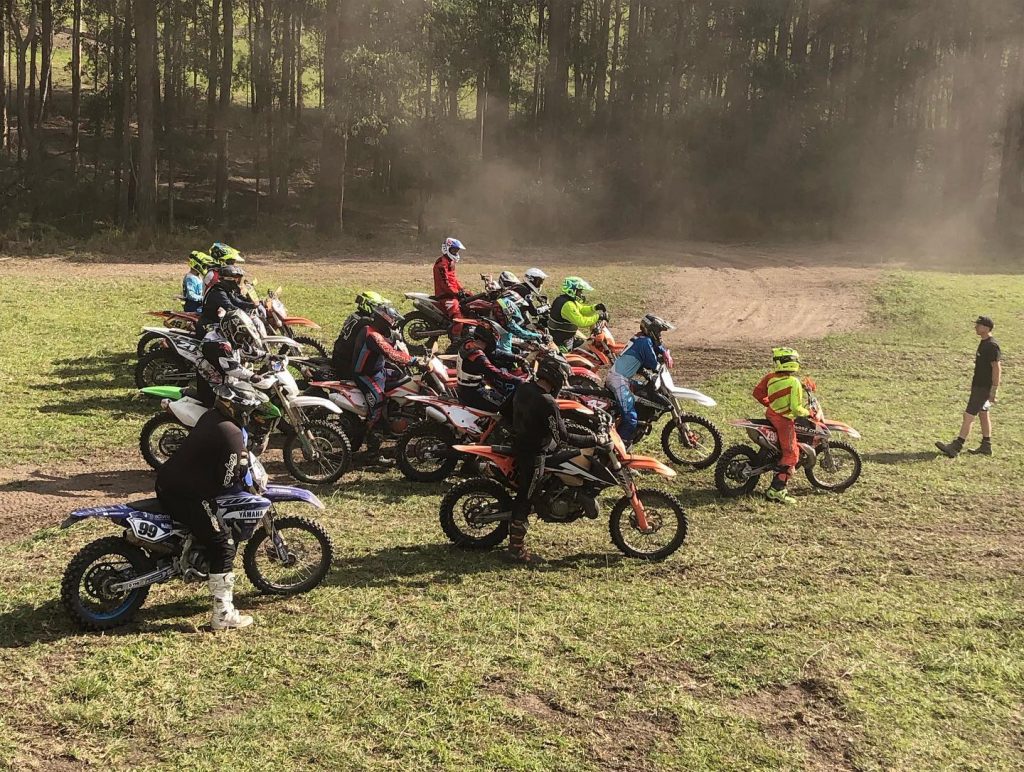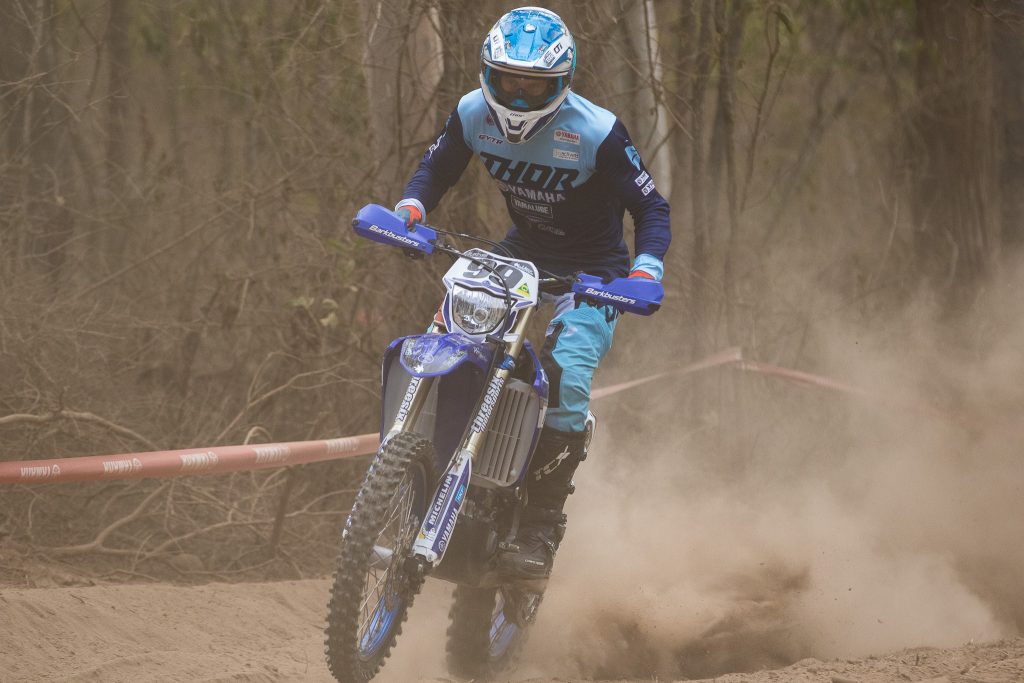With the Penrite Hattah Desert Race fast approaching this weekend, MA reconvenes ahead of the bat to reflect on Active8 Yamaha Yamalube’s Josh Green. After addressing ‘Josh Green, The Athlete’, we now turn to Green’s business and drive outside of actually competing, Off Road Advantage. A new sponsor of AORC, the Off Road Advantage welcomes you into Green’s own backyard where his team guides you through to a point where you ride safer, for longer, whilst conserving energy and having fun!
Since commencing his racing career in the Yamaha Australian Off-Road Championship (AORC) back in 2006, Green has been a dominant force in the Off-Road community both in Australia and internationally. But when the weekend’s racing ends and Green heads home, do you really know what fills an athlete’s days? A common misconception would be that the likes of household names like Green commit to training and workouts each and every day. But what of their businesses? How does one juggle major competing priorities like a business, racing career and training?
Green sat down with MA to shine a light on his love for coaching and the Off Road Advantage, why we need to invest in coaching opportunities in order to avoid overlooking the basics, and his advice to those climbing the ranks who dream of becoming a full-time, professional Off-Road racer.
2019 marks the partnership between Off-Road Advantage and AORC. Why is this relationship important to you and the growth of the Off-Road Advantage brand?
I started coaching a while back now and got heavily into it when I injured my knee, because as you can imagine, I was frustrated that I couldn’t ride. I really found myself getting a kick out of teaching people how to ride, and most importantly, how to ride properly.
Being a part of the AORC Championship is really special to me because I have been involved in it for a very long time. I’ve seen it grow and change into a bigger event, so it’s important to be a part of the event and put back into the sport.
Back in 2016 you spoke with Red Bull about some basics to Off-Road riding that are often overlooked, including maximising traction, body position, clutch wheelies, stoppies, and slow circles. Why do you feel these basics are oft overlooked?
I think that the Australian way is that we believe that we can be the best we can be without training. You look at other sports across the world and everyone is all about get help and training. When I was growing up there wasn’t much, if any, coaching facilities available.
I keep saying that to Michael Driscoll, that he’s so lucky to have coaches who help him learn the proper methods because I have made all the mistakes and learnt all the lessons. I’ve done all the hard work for him, essentially.
I feel that our sport is at a much higher level than it’s even been, and to get to the higher levels you need to take up these sort of coaching opportunities to become the best you can be. I was lucky enough to have people like AJ Roberts in my corner, guiding me for many years now. Other than AJ though, when I grew up I didn’t have the opportunity to have a mentor. Instead I tried to learn as much as I could when I rode with the likes of Beau Ralston and Stephen Merriman.
It’s out of this method of learning from watching that one of the main lessons I teach came about wherein you need to watch other people. You can learn so much by just following!
Walk us through a typical week in the life of Josh Green.
Depending on the time of year it can be out of control when you’re going from event to event.
A “normal” week though involves a couple of days in the gym. I really enjoy mountain bike riding and I find that a really great method of training when you’re not on the bike. I run, I swim for recovery, and then motorbike! And then, there’s coaching.
If I’m not riding, training or coaching, you’ll find me either on the tractor or finding brief moments of calm when I stay at home with my girlfriend. I find those moments are the few times I actually switch off from the rest of my work.
How important is health and fitness to current and aspiring athletes? What advice would you give to emerging athletes in managing the discipline of health and fitness?
It’s probably the biggest part of your career. Back when I started training at 16, you don’t really think about it or worry about it because your body bounces back quickly. But the older you get, the harder your recovery becomes. Nowadays, if I’m not training or stretching, I’m sore! I need to continually work on my body and fitness, so I can stay comfortable.
My advice to emerging athletes is that if you want to be a top competitor in things like AORC, you have to put the work in. There’s just no way around that. For experienced riders like me, we’re used to that discipline and dedication so we’re ready and raring to stick to it the younger, emerging riders.
What advice would you give to interested parties who want to start riding but don’t have a bike or experience on a bike?
I would definitely recommend seeking out some kind of coaching. That doesn’t mean week-to-week training, but instead that you’re seeing someone who is experienced and they’re showing the best riding positions. This then gives you the confidence to keep riding safely, and from there comes the speed.
Has there been a certain piece of advice you received in your career that has stuck with you?
The main piece of advice that’s stuck with me is that you have to do the work to get the reward. It’s not going to happen overnight, so you have to consistently work hard.
Words: MA
Photos: John Pearson












